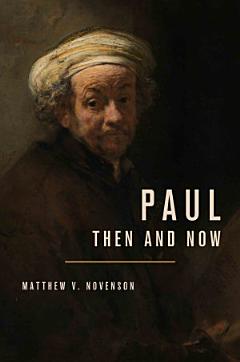Reckoning with the hermeneutical struggle to make sense of Paul as both a historical figure and a canonical muse.
Matthew Novenson has become a leading advocate for the continuing relevance of historical-critical readings of Paul even as some New Testament scholars have turned to purely theological or political approaches. In this collection of a decade’s worth of essays, Novenson puts contextual understandings of Paul’s letters into conversation with their Christian reception history. After a new, programmatic introductory essay that frames the other eleven essays, Novenson explores topics including:
- the relation between theology and historical criticism
- the place of Jews and gentiles in Paul’s gospel
- Paul’s relation to Judaism
- the relevance of messianism to Paul’s Christology
- Paul’s eschatology in relation to ancient Jewish eschatologies
- the aptness of monotheism as a category for understanding antiquity
- the reception of Paul by diverse early Christian writers
- the peculiar place of Protestantism in the modern study of Paul
- the debate over the recent Paul-within-Judaism movement
- anti-Judaism in modern New Testament scholarship
- disputes over Romans and Galatians
- the meta-question of what it would mean to get Paul right or wrong
Engaging with numerous schools of thought in Pauline studies—Augustinian, Lutheran, New Perspective, apocalyptic, Paul-within-Judaism, religious studies, and more—while also rising above partisan disputes between schools, Novenson illuminates the ancient Mediterranean context of Paul’s letters, their complicated afterlives in the history of interpretation, and the hermeneutical struggle to make sense of it all.

